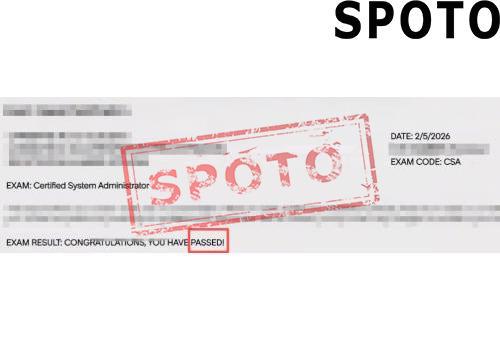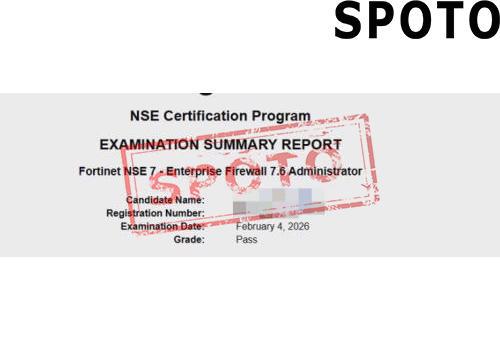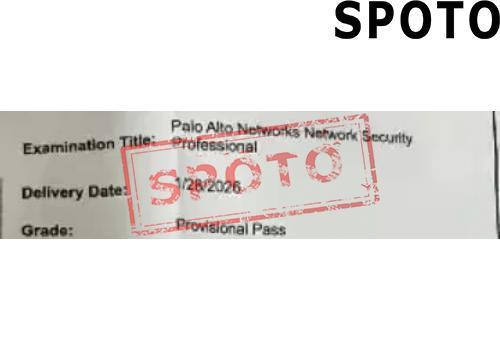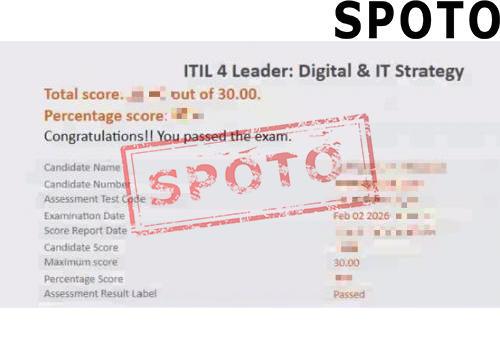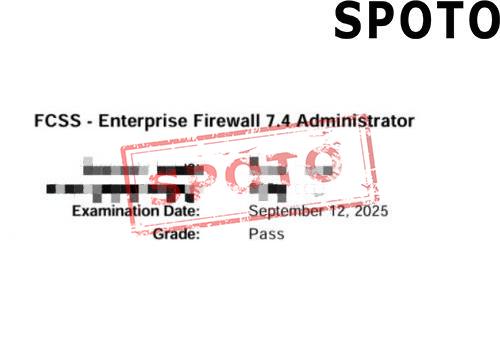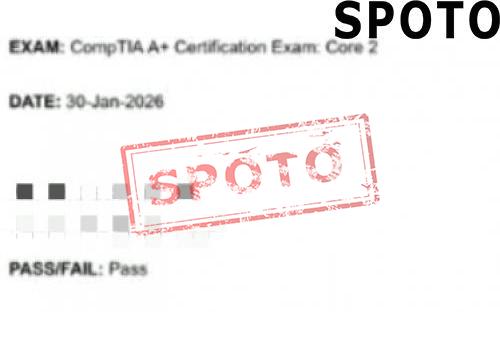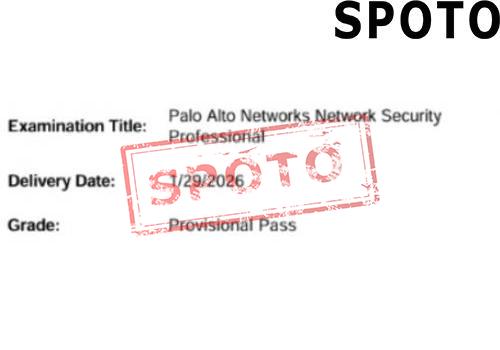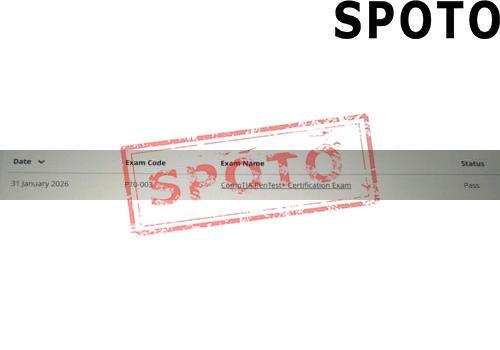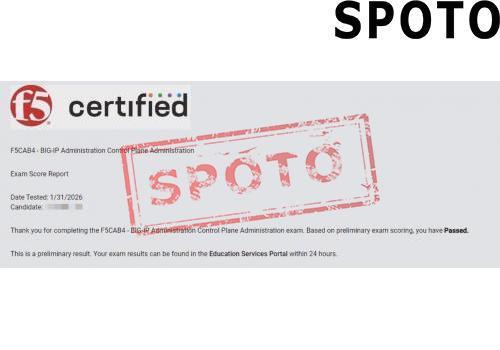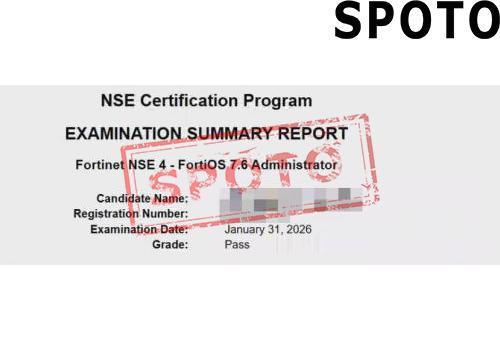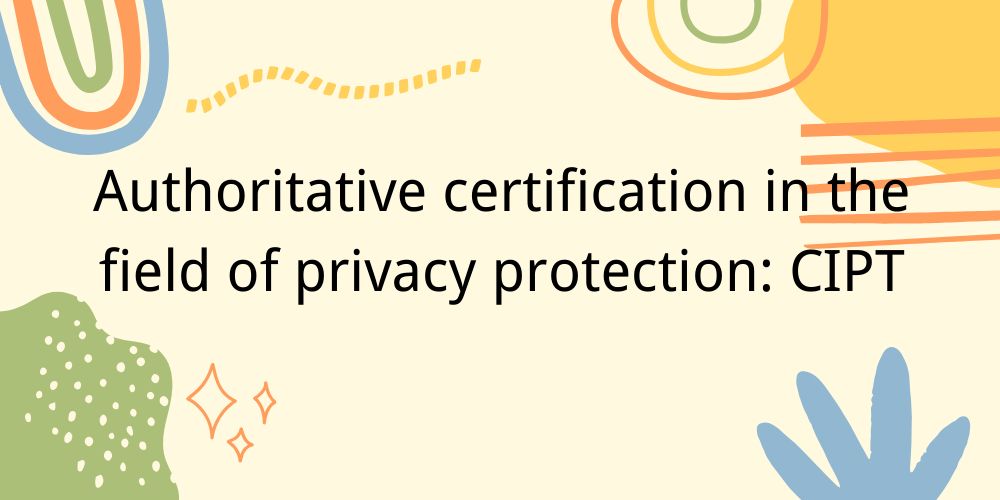
Table of Contents
- 1. Have you heard of CIPT certification?
- 2. Career Advantages of Holding the Certified Information Privacy Technologist Certification
- 3. Do you know something about CIPT certification?
- 4. CIPT vs CIPP: Similarities and Differences
- 5. Qualifying for the Certified Information Privacy Technologist certification
- 6. Similar certifications of Certified Information Privacy Technologist certification
In this article, CIPT is an authoritative certification that helps practitioners proactively embed privacy protection when designing and operating technical systems.
1. Have you heard of CIPT certification?
If you're struggling to integrate privacy into your technology systems, the Certified Information Privacy Technologist (CIPT), offered by ISACA and the IAPP, may be the missing piece. It's more than just a compliance checkbox. The CIPT is unique in that it helps engineers, architects, and technology leaders perform a critical translation: translating complex privacy regulations and board policies into tangible, effective safeguards within codebases and infrastructure. Think of it as becoming bilingual—becoming fluent in both legal requirements and technical implementation, ensuring privacy is woven into the DNA of your systems from day one, rather than tacked on as an afterthought. When we say "privacy by design," this certification demonstrates that you know how to do it right down to the keyboard. In today's environment, this skill is not only incredibly valuable but also becoming a foundational requirement for anyone building trusted technology.
2. Career Advantages of Holding the Certified Information Privacy Technologist Certification
The CIPT certification demonstrates a practitioner's professional competence and serves as an authoritative endorsement in the field of privacy technology. It verifies an individual's ability to translate privacy regulations into technical solutions, making them a "technically literate privacy expert" or "privacy-savvy technology expert." CIPT is also one of the three core certifications offered by the International Privacy Application Program (IAPP) and is widely recognized by companies worldwide. It is particularly recognized in sectors like finance, technology, and healthcare that handle large amounts of sensitive data. It serves as a key screening criterion for hiring for privacy technology positions, demonstrating a combination of "regulatory and technical" skills.
Amidst increasingly stringent data privacy regulations, demand for professionals skilled in technical privacy protection is surging. According to an IAPP survey, practitioners earn an average annual salary of approximately $110,000 globally, significantly higher than typical IT positions. CIPT certification is not only a key advantage for becoming a privacy technology engineer or data security expert, but also a crucial qualification for advancement to sought-after positions such as senior privacy architect and chief privacy technology officer.
Data privacy protection is a critical requirement for both traditional enterprises and internet companies. CIPT skills are applicable to all scenarios involving the processing of personal data, offering a wide range of career options. The CIPT certification is therefore highly adaptable across industries.
CIPT certification is different from CIPP, which focuses on law, and CIPM, which focuses on management. CIPT focuses on technology implementation, helping companies solve the pain point of "knowing they need to comply but not knowing how to implement it with technology," thereby bridging the gap between compliance and technology.
This "real-world problem-solving" attribute makes it more practical for businesses. With the increasing prevalence of AI, cloud computing, and the Internet of Things, privacy protection scenarios are becoming increasingly complex.
3. Do you know something about CIPT certification?
The CIPT assessment focuses on "Technical Privacy Assurance Throughout the Data Lifecycle," integrating regulatory understanding with practical technical application. It requires practitioners to master core concepts of privacy and data protection, identify privacy risks in technical systems, and master the application of privacy technology frameworks and tools, as well as data anonymization and de-identification techniques, data encryption, access control, and privacy-enhancing technologies.
4. CIPT vs CIPP: Similarities and Differences
Both CIPT and CIPP are core privacy certifications offered by the International Privacy App (IAPP). Together, they constitute key qualifications in the privacy field, but they differ significantly in their positioning, content, and applicable audiences. However, they also share some similarities.
In terms of similarities, both are based on global privacy regulations and focus on the core principles of data privacy protection. Both are widely recognized by global businesses and serve as authoritative proof of professional competence in the privacy field. Furthermore, both emphasize an understanding of privacy compliance, serving the goals of enterprise data compliance and risk management.
The differences between the two are as follows:First, their core positioning differs. CIPP, a "Privacy Law Expert Certification," emphasizes a deep understanding of global privacy laws and regulatory frameworks, focusing on interpreting regulatory provisions, defining compliance obligations, and assessing legal risks, emphasizing a greater emphasis on "knowing the law." CIPT, a "Privacy Technology Expert Certification," focuses on how to implement privacy regulations through technical means, focusing on technical protection measures throughout the data lifecycle, emphasizing a greater emphasis on "implementation."
Second, their emphasis on knowledge and skills differs. The CIPP focuses on regulatory text, supervisory requirements, and compliance processes. It covers specific provisions of major global regulations such as the GDPR, CCPA, and China's Personal Information Protection Law, as well as regional differences and applicable scenarios. It emphasizes understanding legal logic and compliance frameworks. The CIPT, on the other hand, focuses on data security tools and privacy-by-design principles, emphasizing the translation of regulatory requirements into actionable technical solutions.
Finally, the applicable audiences and roles in corporate practice differ. CIPP holders are typically the "strategic planners" of corporate privacy compliance, while CIPT holders are the "technical implementers" of corporate privacy compliance.
5. Qualifying for the Certified Information Privacy Technologist certification
(1) Prerequisites
The CIPT does not require mandatory academic qualifications or work experience, but the official recommendation is that practitioners have 1-2 years of experience in IT, data management, or privacy-related work, basic technical knowledge, and a basic understanding of global privacy regulations.
(2) Examination format
The CIPT examination lasts 2.5 hours and covers 90 multiple-choice questions. The examination is scored out of 100 points, and a score of 65% or higher is considered a pass. The examination fee is approximately US$550 (the IAPP membership price is approximately US$450).
(3) Maintaining certification
The CIPT certificate is valid for 2 years, and 20 continuing education (CE) credits must be accumulated every 2 years to maintain certification.
6. Similar certifications of Certified Information Privacy Technologist certification
- Certified Information Privacy Professional (CIPP)
- Certified Information Security Manager (CISM)
- Certified Data Privacy Solutions Engineer (CDPSE)
- Certified Cloud Security Professional (CCSP)
